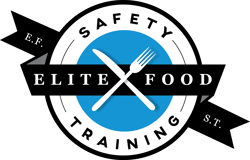
Ensuring food safety compliance is crucial for protecting public health, maintaining a good reputation, and adhering to legal requirements.
The Critical Role of Food Safety Certification
Food safety certification is more than just a regulatory requirement; it is a commitment to public health and safety. Certified food handlers and managers ensure that food is prepared, handled, and stored in ways that minimize the risk of foodborne illnesses. This certification process involves rigorous training and testing, covering the latest in food safety practices and regulations.
September, being National Food Safety Month, serves as a timely reminder to review and renew your certifications. Ensuring that you and your team are certified and that these certifications are up-to-date is essential. It not only protects your clientele but also safeguards your business's reputation.
Key Components of Food Safety Compliance
National Food Safety Month highlights several crucial aspects of food safety compliance. These include proper cooking temperatures, hand-washing techniques, and stringent cleaning procedures. Adhering to these components helps in preventing contamination and ensuring that the food served is safe for consumption.
Implementing a Hazard Analysis Critical Control Point (HACCP) plan is another critical component. This systematic approach identifies and controls potential hazards in the food production process, ensuring that safety measures are in place at every stage.
Benefits of Maintaining Food Safety Standards
Maintaining high food safety standards offers numerous benefits. First and foremost, it protects public health by reducing the risk of foodborne illnesses. This, in turn, enhances customer trust and loyalty, as patrons feel confident that the food they consume is safe.
Furthermore, compliance with food safety standards helps in avoiding legal penalties and potential shutdowns. It also boosts your business's reputation, making it more appealing to customers and partners alike. Investing in food safety training and compliance can lead to long-term profitability and success.
Common Challenges and How to Overcome Them
Despite the importance of food safety, many businesses face challenges in maintaining compliance. One common issue is keeping up with the ever-evolving regulations and standards. Regular training and updates are essential to ensure that all staff members are aware of the latest requirements.
Another challenge is the implementation of consistent and thorough cleaning procedures. Establishing a routine and using checklists can help in maintaining high hygiene standards. Additionally, regular audits and inspections can identify areas for improvement and ensure ongoing compliance.
How to Stay Updated with Food Safety Regulations
Staying updated with food safety regulations is crucial for maintaining compliance. Subscribing to industry newsletters, participating in training programs, and attending relevant conferences can help in keeping abreast of the latest developments.
Partnering with a specialized company like Elite Food Safety can also be beneficial. With our comprehensive training programs and auditing services, you can ensure that your team is well-equipped to adhere to current food safety standards. Regularly reviewing your records and renewing certifications before they expire are crucial steps in this process.

.png)
-2.png)
-2.png)
.jpg)
